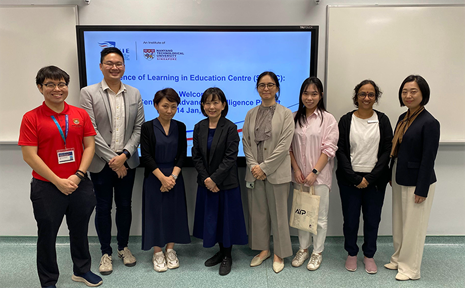46.4% of fresh grads from private institutions land full-time jobs: Poll
.png?sfvrsn=37d07572_3)
About half of fresh graduates from private education institutions (PEIs) here found full-time work within six months of completing their examinations, a survey shows.
Released by SkillsFuture Singapore (SSG), the latest graduate employment survey indicated that 46.4 per cent of fresh PEI graduates secured full-time permanent jobs, a dip from 49 per cent for the previous cohort.
But overall, 85.3 per cent of them found work, including part-time or freelance jobs, up from 80.7 per cent previously.
The survey found that job prospects for PEI graduates lag behind their peers from autonomous universities.
The overall employment rate for fresh graduates from the 2021 cohort in autonomous universities was 94.4 per cent while the full-time permanent employment rate was 84 per cent.
The figures for post-national service polytechnic graduates were also higher, at 94.2 per cent and 63.3 per cent respectively.
The poll also showed that the median gross monthly salary of PEI fresh graduates in full-time jobs was $2,989, compared with $3,800 for those from autonomous universities and $2,614 for post-national service polytechnic graduates.
The survey focused on employment outcomes of about 2,900 economically active graduates from full-time bachelor's-level external degree programmes.
This batch came from 28 PEIs such as the Singapore Institute of Management and PSB Academy and graduated between May 2020 and April 2021.
Meanwhile, 27.9 per cent of PEI fresh graduates were unemployed and still looking for a job within six months of their final examinations, or were in involuntary part-time or temporary employment, according to the survey.
This was higher than the corresponding figure of 6.2 per cent for fresh graduates from autonomous universities and 6.7 per cent for post-NS polytechnic graduates.
In yesterday's statement, Ms Hui Mei San, director-general for private education at SSG, said: "With a greater focus on lifelong learning today, there are multiple learning pathways and opportunities available for Singaporeans to pursue learning and upgrading at different stages of their lives, to achieve their career goals and aspirations.
"The findings of the PEI graduate employment survey thus aim to help prospective students make informed decisions when deciding on their learning and career options amid these varied options."
About 9,400 full-time bachelor's-level external degree programme students graduated between May 2020 and April 2021, with about 45 per cent of them responding to the survey.
The statement noted that the findings do not cover certain groups of students, such as fresh graduates who are not actively looking for jobs, part-time students and mature learners, as well as international students working or seeking employment abroad.
It added that there was considerable variation in the employment outcomes of graduates across the different PEIs, and potential students are advised to look at the outcomes for specific institutions before making their decisions.
Associate Professor Jason Tan from the National Institute of Education said many polytechnic graduates continue to hope that a university degree will give them an edge in the job market.
This aspiration will continue as long as there is a hierarchy of qualifications in the system, he added.
“But the gap between private and autonomous university graduates has always been there, perhaps partly because of employer perception and the varying academic standards across institutions,” Prof Tan said.
He also said that students considering degree programmes by PEIs must consider the large investment required of them.
“These courses don’t receive financial support from the Government, so you would have to fork out your own money,” said Prof Tan, who also noted the opportunity cost of lost earnings during the period of full-time studies.
Read the original article here.
Source: The Straits Times © SPH Media Limited. Permission required for reproduction







